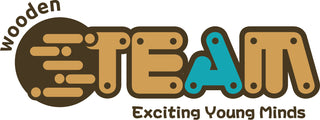
What is science? Relationship to STEAM/STEM Education
What is science? Relationship to STEAM/STEM Education
Science refers to a discipline that studies various phenomena of nature and the movement of matter, and explores and discovers various development laws of nature .
1. Various branches of science
Scientific research objects are various phenomena in nature and the forms of material movement, and discover natural laws from them. Therefore, science includes seven major subjects including mathematics, physics, chemistry, biology, astronomy, earth, and logic, as well as some branches or marginal subjects of these subjects.
The research results of these disciplines have jointly become the theoretical basis of science, which has played an important guiding role in the technology of various jobs. For science, we must clearly understand its status. Science has a guiding role in all technical theories and has a significant impact on the development and transformation of science and technology.
2. Who is suitable for studying science
1. People who are interested in science
If you are interested, you can focus on this subject. You can think about some related issues when you are not consciously aware of it. When you think about difficulties, you can persist in reading to solve your doubts.
2. People who can think independently
Science must pursue a kind of essence, and it must get to the bottom, so that the root can be discovered. Therefore, this requires people who study science to be good at independent thinking, and not to be what others say.
3. A person who can calmly observe things
This kind of people will be more rational, with strong logical thinking ability, able to keep their concentration on one thing in a lively environment, and able to concentrate on thinking.
4. People who have broad interests in things
When this kind of people understand nature and human society, they can discover things that are connected with science, which can inspire the research of science.
Third, what to do if you want to learn science well
1. Learn to ask questions during the learning process
Science is different from other liberal arts subjects. To learn science, you need to understand many concepts in it, which means that there is a certain test for people's thinking ability. There is no fixed answer when answering questions in the liberal arts, but science is the same as mathematics, and the answer is fixed. So some people find it difficult to learn science, so when you don’t understand, you must ask. No matter what, you must fully understand it, and you also need to apply the understood content to the question, and then answer the question .
2. Have a correct learning attitude
This is more important than learning ability. Attitude has a great impact on grades. You must be open-minded and persevere in the learning process.
3. Be careful when doing the questions
This is also indispensable, and this is also a matter of habit. In the process of doing the questions, you must carefully review the questions, avoid writing typos, do not miss when solving the questions, and check the calculated answers in time.
4. Focus on class to ensure efficiency in class
During the class, the teacher will explain a lot of knowledge points, and will repeat which ones are the key points. Therefore, you must listen carefully during class, and don’t be distracted. If you are distracted for a minute, you may miss the key knowledge taught by the teacher. After listening to lectures carefully, you also need to pay attention to the efficiency of class, and your thinking must follow the teacher to ensure the rapid operation of thinking, and learn to infer other knowledge from one instance.
Fourth, what courses should science majors learn
Science majors are divided into several sub-disciplines, and different sub-disciplines take different courses. For example, there are more than a dozen courses in geography, such as Chinese and world geography, economic geography, and urban and rural planning. Cognitive science courses include cognitive psychology, linguistics, and computational methods of cognition.
5. Science and STEAM Education
In recent years, the STEM education promoted by the Hong Kong government refers to "Science", "Technology", "Engineering" and "Mathematics"; STEAM courses have added "Arts".
In recent years, It has become a new trend in international education and has had a major impact on the direction of education in Hong Kong.
STEAM education courses include the teaching of scientific knowledge, and during the teaching process, the teaching content is not only scientific knowledge, but also scientific practice, integrating multiple disciplines including science.
